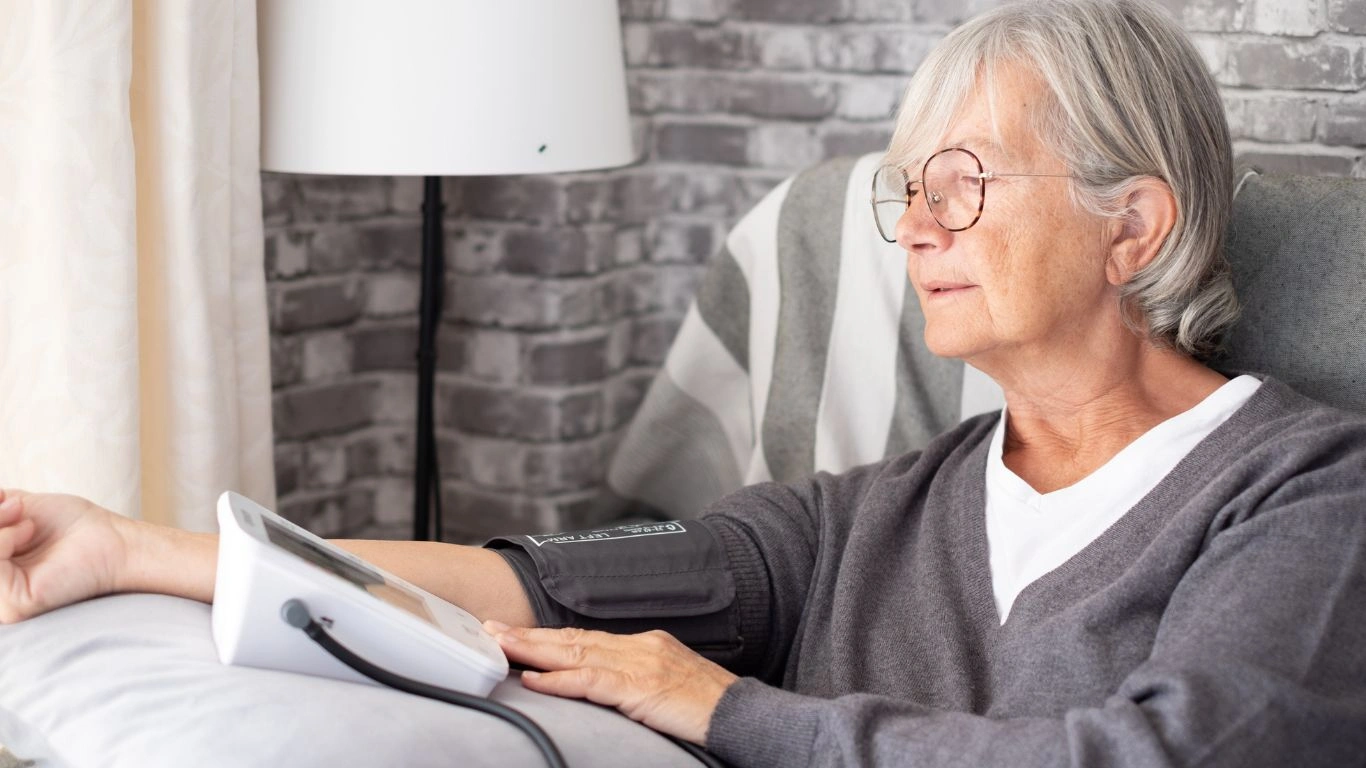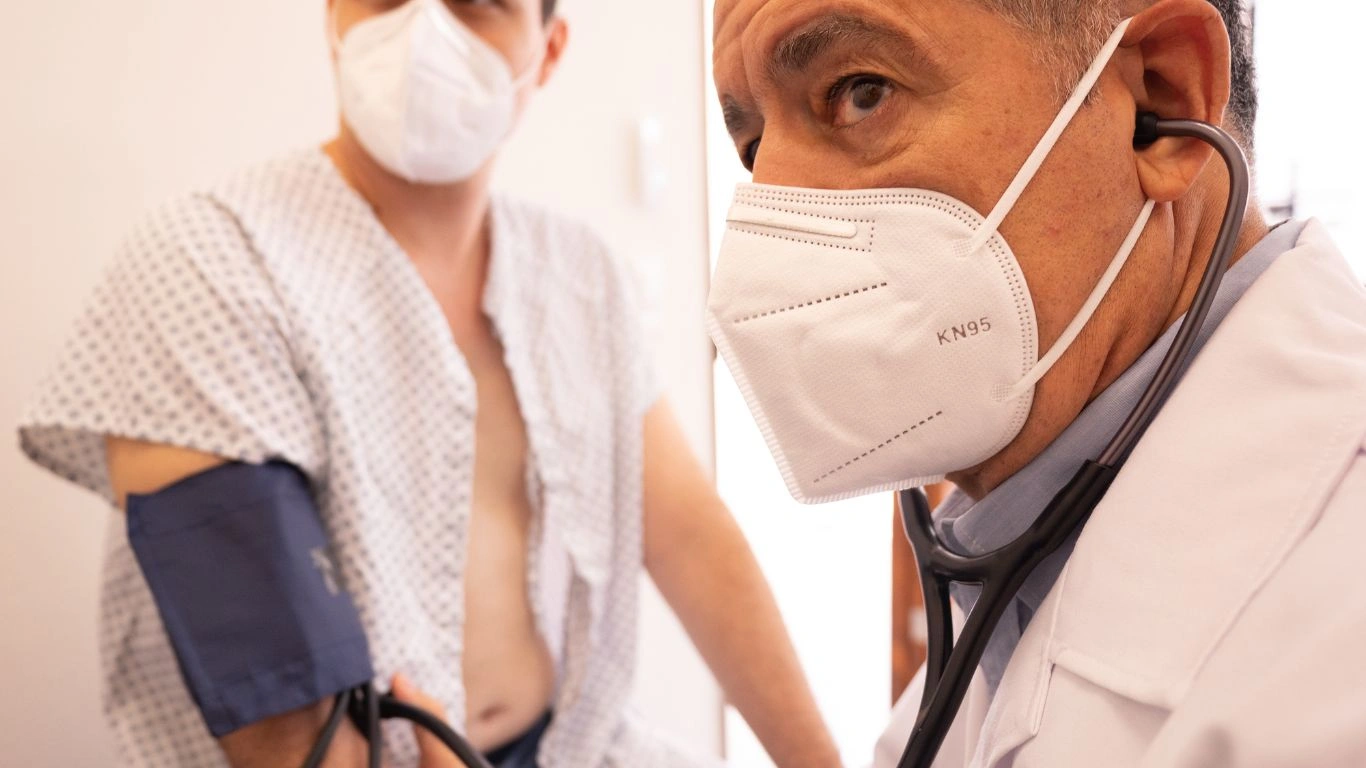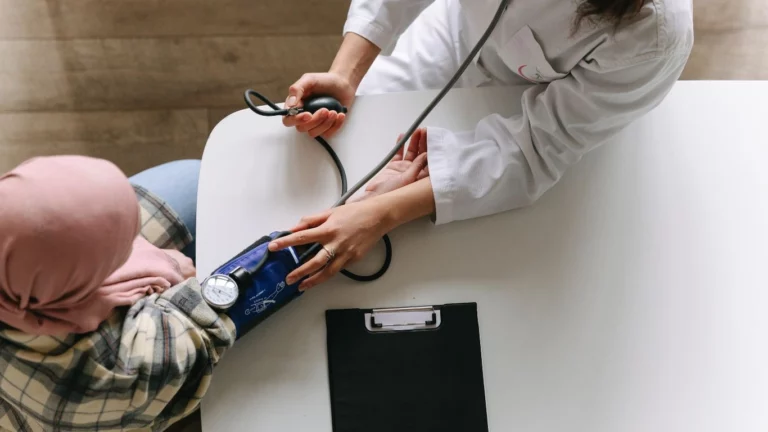How Sleep Affects Blood Pressure Levels – A Comprehensive Guide
Ever wondered how your sleep impacts your blood pressure? It’s a lot more connected than you might think! Let’s dive into how sleep quality affects your blood pressure and explore some tips for getting better rest to keep your heart healthy.
If you’re looking to maintain healthy blood pressure, getting enough sleep is just as important as eating well and exercising. Sleep plays a critical role in your overall health, and it turns out, it’s particularly important for keeping your blood pressure in check. Whether you have high blood pressure or just want to stay ahead of the curve, understanding how sleep and blood pressure are linked can help you make better lifestyle choices.

How Does Sleep Affect Blood Pressure?
Sleep isn’t just a time for your body to rest—it’s also when your body does a lot of its healing, maintenance, and repair. During sleep, your blood pressure naturally dips, and your body takes a break from the stress and strain of daily activities. This dip in blood pressure is part of a healthy sleep cycle and is crucial for heart health.
If you’re not getting enough sleep, or if the quality of your sleep is poor, your blood pressure may not dip enough, leading to higher levels. Over time, this can increase your risk of developing hypertension (high blood pressure). Poor sleep, especially over long periods, can also cause your body to release stress hormones like cortisol, which can further elevate blood pressure.

Why Sleep Deprivation is Linked to High Blood Pressure
Sleep deprivation has been shown to lead to higher blood pressure levels. When you don’t sleep enough, your body doesn’t get the chance to recover properly, which means your stress levels can remain high throughout the day. This constant state of heightened stress can cause your blood vessels to constrict, leading to an increase in blood pressure.
A lack of sleep can also affect your body’s ability to process sodium properly, which is another key factor in regulating blood pressure. When your kidneys can’t balance sodium levels correctly, it can lead to water retention and increased blood pressure.
Sleep Apnea and Hypertension
One of the most significant sleep disorders that impact blood pressure is sleep apnea. People with sleep apnea experience repeated interruptions in their breathing during sleep, leading to drops in oxygen levels and spikes in blood pressure. This can cause long-term problems for heart health if left untreated. So if you snore loudly or wake up feeling tired despite getting a full night’s rest, sleep apnea could be a factor in your blood pressure issues.
How Much Sleep Do You Need for Healthy Blood Pressure?
Most adults need between 7 to 9 hours of sleep per night for optimal health. This amount of sleep allows your body to go through the full cycle of restorative sleep, including the deep stages where your blood pressure naturally dips. If you’re consistently getting less than that, your risk for high blood pressure can increase.

Tips for Improving Sleep and Managing Blood Pressure
So, how can you get better sleep and, in turn, better manage your blood pressure? Here are some tips that can help improve your sleep quality and keep your heart and blood vessels in good shape:
1. Stick to a Regular Sleep Schedule
Try to go to bed and wake up at the same time every day, even on weekends. This helps regulate your body’s internal clock and can improve the quality of your sleep.
2. Create a Relaxing Bedtime Routine
Establishing a calming bedtime routine can help signal to your body that it’s time to wind down. Whether it’s reading, meditating, or taking a warm bath, find what works for you.
3. Limit Screen Time Before Bed
The blue light from phones and computers can mess with your body’s production of melatonin, a hormone that helps you fall asleep. Try to turn off screens at least 30 minutes to an hour before bedtime.
4. Avoid Caffeine and Alcohol
Caffeine and alcohol can both interfere with your sleep cycle. Caffeine is a stimulant, and alcohol, while it might help you fall asleep faster, can disrupt your sleep later in the night.
5. Manage Stress
Stress can keep you awake at night and negatively affect your blood pressure. Finding ways to manage stress, like practicing deep breathing or mindfulness, can help you sleep better and keep your blood pressure in check.
Conclusion
In summary, getting good sleep is essential for maintaining healthy blood pressure. If you’re not getting enough rest, your blood pressure may not dip the way it should, leading to long-term health risks. By prioritizing sleep, sticking to a regular sleep schedule, and reducing stress, you can help protect your heart and improve your overall well-being.
Appendices
References
For more information on how sleep impacts blood pressure and overall health, here are some useful resources:
- National Heart, Lung, and Blood Institute (NHLBI). (2023). “How Sleep Affects Your Blood Pressure.” Read Article
- American Heart Association. (2022). “The Relationship Between Sleep and Hypertension.” Read Article
- Smith, J., & Johnson, K. (2021). “Sleep Deprivation and Its Impact on Heart Health.” Journal of Sleep Disorders, 39(4), 213-220. Read Article
FAQs
Here are some frequently asked questions about sleep and blood pressure:
- Can sleep deprivation cause high blood pressure? Yes, lack of sleep can lead to elevated blood pressure over time. Sleep helps regulate stress hormones and blood vessel function, so without enough rest, your blood pressure can increase.
- How much sleep do I need to lower my blood pressure? Aim for 7-9 hours of sleep each night. This allows your body to rest fully and keeps your blood pressure levels stable.
- Does sleep apnea affect blood pressure? Yes, sleep apnea can cause spikes in blood pressure due to oxygen drops during sleep. It’s important to get it treated if you suspect you have it.
- What are the signs of high blood pressure during sleep? While you might not feel high blood pressure directly, poor sleep quality, feeling constantly fatigued, or waking up with a headache could be signs of hypertension.
- Can good sleep habits improve my blood pressure? Absolutely! By improving sleep quality—such as sticking to a sleep routine, reducing stress, and avoiding stimulants—you can help maintain healthy blood pressure levels.
Disclaimer: The information provided in this article is for educational purposes only and does not substitute for professional medical advice. Always consult with a healthcare provider regarding any concerns about your blood pressure or sleep quality.

Dr. Gwenna Aazee is a board-certified Internal Medicine Physician with a special focus on hypertension management, chronic disease prevention, and patient education. With years of experience in both clinical practice and medical writing, she’s passionate about turning evidence-based medicine into accessible, actionable advice. Through her work at Healthusias.com, Dr. Aazee empowers readers to take charge of their health with confidence and clarity. Off the clock, she enjoys deep dives into nutrition research, long walks with her rescue pup, and simplifying medical jargon one article at a time.







